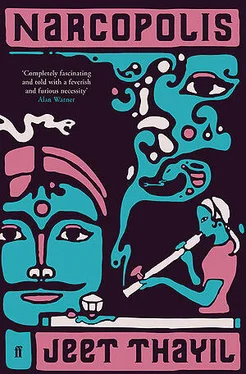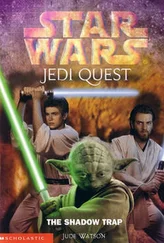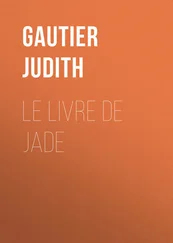‘He always said he is first to die,’ said Ah Fong, ‘I always say, wait, you see, I die first.’
Everybody dies, thought Dimple. Losing your family is like dying, which means I’ve died twice. At the Chinese shop they had shown her a black button she could pin to her sari, the salesman telling her it was the latest thing on the mainland. Instead of an armband you wore a button, silk, very stylish. She wanted the armband, she told him, and she wore it over her sari blouse, an old-fashioned one that Mr Lee had liked, elbow-length red cotton. She found a framed picture of Mr Lee in uniform, which she placed on the shrine, and she poured a splash of red wine on the ground. There was a plate with sliced meat from a rooster. There was fish and sweet egg cakes. She burned bundles of lucky money in red packets embossed with the symbol for double happiness. His clothes were still in good shape and she couldn’t bring herself to burn them, his uniform, the silk padded jackets, the white tunics and black pyjamas, his black canvas walking shoes, the stick with the jade dog’s head. She put them on a shelf and forgot about them. A week after the funeral she found Ah Fong waiting at the khana early one morning. He was agitated, talking before she’d even opened the door, and it was strange to see him on the street in the daylight, and to hear the things he was saying.
‘I had dream. Ah Lee, standing in front of me, shivering in the cold, naked as day he’s born. He said: I have no clothes. Give me your shirt. I wake up, I shout, I was so frighten. Why you don’t burn his clothes? This is message, he is sending you message from grave.’
It spooked her. She gathered Mr Lee’s things and took a taxi to the cemetery. The cotton garments burned quickly, but the shoes sputtered and black smoke poured from the soles. She asked the attendants for help. They piled everything together in a pit and lit a bonfire. It took an hour for the fire to smoulder down to ash and she waited, alone on a bench, and then she felt it, felt his spirit lighten, or was it her own spirit, lifting like a balloon into the sky? She had done as he wanted in every detail except one: she didn’t take his ashes home with her and find a way to return them to China. She left him in Sewri. Years later she would be given the opportunity to correct her mistake, but by then it would be beyond her. And by then she would understand that when she felt his spirit leave the cemetery and ascend into the sky, she had been partially right; what she had gotten wrong was the direction in which Mr Lee moved and the element in which he settled. He went downward, where he waited in water for the chance to speak to her again.
Chapter Nine The Pipe Comes to Rashid’s
She wrapped the pipes in muslin and took them to Rashid’s. It was early in the day. The screen doors were open to the light and the radio played a song from Pyaasa , Geeta Dutt singing of heartache. It made her think of the movies she’d watched growing up, secret excursions to Tardeo Talkies for Raj Kapoor and Guru Dutt, all that sepia longing and Government of India footage of war and industry. The room was from the same black-and-white era. She came in with the pipes and Rashid was reading an Urdu newspaper. He was islanded, barricaded by a bottle and glasses, cigarettes, pipes, dirty dishes, discarded clothing. He didn’t seem surprised to see her. The first thing he did, he asked if she wanted tea. I can call for it from the balcony, he said. I’ll put on a shirt and call for tea.
She said, ‘I don’t want tea, Mr Rashid, thank you.’
‘Okay, no problem, no problem. What can I do for you?’
‘Actually, I’ve brought something for you.’
She unwrapped the pipes and placed them on the floor and picked up the longer one, three feet something from tip to tip.
‘At least five hundred years old. Made by a Chinese pipe master, much superior to our local pipes because of the quality of the wood and the seasoning.’
‘Is it too long?’
‘No, sir; it’s constructed on the same principle as a hookah. The length is very important, it cools the smoke as it travels from the bowl to the mouthpiece.’
‘You’ve been practising this speech.’
‘Yes, sir, a little.’
He liked her manner, her conservative clothes, the way she spoke Hindi mixed with English. He watched her as she assembled the lamp and oil and chandu and he liked that too, the sight of a woman calmly making a pipe, because an Indian woman in a chandu khana was a rare sighting. She tapped the stem when the pipe was ready and it took him a moment, an awkward moment of grapple, to adjust to the big mouthpiece. But she was right: the pipe was a work of art. The wood was stained reddish brown and there was old brasswork at the mouthpiece and bowl. Maybe he was imagining it, but the smoke tasted better and you could take deeper drags and a single pyali went a long way.
‘How much do you want for it? Maybe I’ll take both.’
‘I don’t want to sell the pipes, Mr Rashid.’
‘You call me Rashidbhai or Bhai, not Mr Rashid, this is not America.’
‘Bhai, let me work for you. I can make pyalis and take care of the pipes.’
He said he would not be able to pay her. She would get three pyalis a day and tips. She could eat in the khana but she couldn’t sleep there.
‘I have a place to sleep, but I smoke four pyalis a day — of good opium.’
‘Mine is the best on the street. Where do you smoke?’
He was surprised to learn that Mr Lee was real. Like everyone else, he’d heard the story about a Chinese khana somewhere on Shuklaji Street and he’d dismissed it as fiction. But he knew the value of old stories and he incorporated Mr Lee’s into his own. Rashid told everyone he bought the pipes from the old Chini himself. He told the story so many times that eventually he came to believe it and with each telling he added new details. Mr Lee was on his deathbed when he sent for Rashid; it was the second last thing he did before he died, he handed over the pipes; the last thing he did was to smoke; he didn’t want anyone else to have the pipes, only Rashid, because he wanted them to go where they would be best used; the pipes had originally belonged to the emperor of China and had fallen into the hands of the Nationalist army; and so on.
*
To match the quality of Mr Lee’s pipes he put less water in the cooking mix. Soon the place was packed with regulars and tourists and all kinds of unlikely people who came just to visit. He raised the price of a pyali to three rupees from two but the opium was so much better than anywhere else that no one complained; if anything, business improved. A tall Australian turned up. He smoked all day and drew pictures in a small notebook and spent a lot of money. He was generous: he bought pyalis for everyone. He came back the next day and the next and for a week he was a regular at the khana. He communicated mostly with his hands, because no one could understand him though he was speaking English. Months after he left, after he’d taken off for Sydney or Melbourne or wherever, someone said he was a famous musician whose tunes were played on the radio in the West, and that he’d written a song about his experience at Rashid’s, that there was something in it about ‘lying in a den in Bombay,’ though it might have been a coincidence. Then the son of a well-known director came around. He was making his first movie and he wanted to get the atmosphere right for a scene set in an opium den. He sat at the entrance near the washing area and he didn’t try a pipe. He dropped the names of actors and directors, all of whom were close family friends, or so he said. It wasn’t his patter that irritated Rashid, but his laughter, high-pitched and smelling of insanity. He wore a straw hat that he held in his lap. He took notes. He took a photograph of Dimple that would appear many years later in a book about Bombay’s opium dens (in the picture, a young woman holds a pipe to a lamp, her face intent, and in a corner of the frame is a book, the title partly obscured, ii ). After much deliberation he decided to try a pyali, smoked half and ran down the stairs to vomit. But it was his smoking technique that was most remarked on. He wiped the mouthpiece with a handkerchief soaked in Dettol, wiped it each time he took a drag and the pipe smelled for days of antiseptic. When he returned from the toilet he asked if he could take more pictures and Rashid said yes, of course he could, but then he would have to break the director’s son’s legs and cut off his hands to ensure he never left the khana, which riposte Rashid delivered with a smile, as if he were sharing a joke.
Читать дальше












